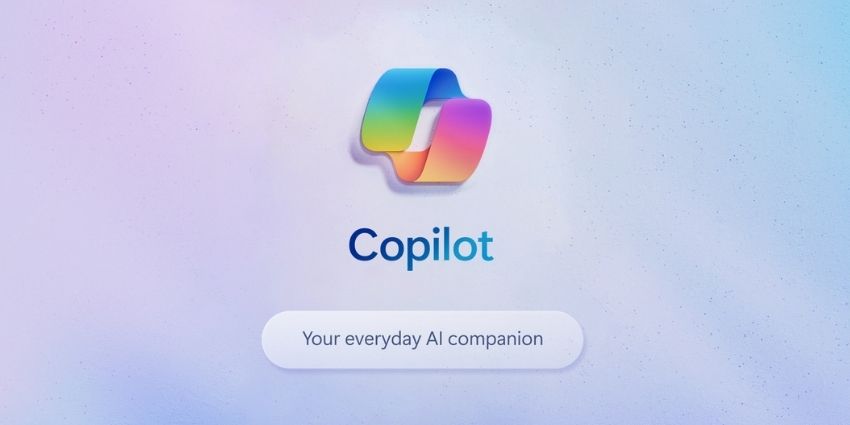For all kinds of people, artificial intelligence has become a mainstream concept – something we use every day to search for information, create content, and even streamline meetings. Anthropic AI for enterprises, however, is one of the few “solutions” that refuses to ignore the biggest risk associated with increased AI adoption – human safety.
We all know how valuable AI can be. Our own reports have shown countless enterprises are using AI tools to increase productivity, creativity, and even employee training. But, the more autonomous AI becomes – and the more it makes decisions on our behalf, the more dangerous it can be.
- Ready to learn more about the benefits of Anthropic AI? Discover how enterprises can scale with Anthropic tools, with insights from these case studies. Or explore how Anthropic compares to other AI leaders in this comparison guide.
Anthropic recognizes this hurdle, and is responding to it in a unique way – creating models and tools that prioritize safety and ethics. So, what exactly is Anthropic AI for enterprises – what are the benefits of investing in “responsible” AI solutions, and what can teams accomplish with Anthropic’s technology? Here’s everything you need to know.
What is Anthropic AI for Enterprises?
Anthropic is an AI public benefit corporation founded in 2021 by siblings Dario and Daniela Amodei, with the help of several ex-OpenAI researchers. Dario Amodei previously led the teams that developed GPT-2 and GPT-3 at OpenAI. His departure from OpenAI centered on concerns that safety wasn’t a big enough priority, especially following Microsoft’s $1 billion investment in OpenAI.
Though Anthropic still wants to create useful AI tools – systems that can handle complex queries and tasks for enterprise users – it’s overall focus is on making tools that are helpful, harmless, and honest.
This company introduced the concept of “constitutional AI” to the masses, demonstrating how human-generated rules and ethics could help tackle a range of responsible AI challenges. For enterprises, this means that Anthropic is one of the few leading AI vendors that might actually help businesses address problems with privacy, safety, and governance.
Currently, Anthropic is focused on a few key areas:
Anthropic AI for Enterprises: Claude
Claude is Anthropic’s flagship AI product – an AI chatbot, designed to compete with the likes of ChatGPT, Google Gemini, and Microsoft Copilot. Like its competitors, Claude can generate natural, human-like responses to prompts – and it benefits from multimodal capabilities.
According to Anthropic’s benchmark tests, Claude excels at conversational Q&A tasks, summaries, drafting, editing, creative writing, data analysis, and coding. The solution is available through a range of plans, and companies can access APIs to embed Claude functionalities into existing tools.
Constitutional AI: Building a Moral Compass
Most AI labs rely on human feedback to fine-tune their models. That means giving people pairs of outputs and asking which one is better (you might have noticed ChatGPT doing this). While that approach helps, it can be time-consuming and unpredictable, and it’s not always transparent how the model’s “values” are decided.
Anthropic’s solution is Constitutional AI. They program a “constitution” of ethical principles – often grounded in sources like the United Nations Declaration of Human Rights – into the training loop. This means Claude compares its own outputs to a list of guiding rules and continually adjusts its responses to comply with them.
This dual-step approach combines supervised learning and reinforcement learning but reduces over-reliance on human feedback. It also makes the model more transparent and easier to steer.
Interpretability Research: Peering Inside the Black Box
Beyond creating more ethical AI models, Anthropic is invested heavily in “interpretability research” – basically figuring out how and why AI models make certain decisions. They’re trying to eliminate the issue of black box AI, to ensure models are easier to understand and fine-tune.
In 2024, they made headlines by reverse-engineering Claude 3 Sonnet, giving them a deeper understanding of how the AI “thinks.” Researchers look for patterns in the model’s internal workings, seeking ways to diagnose and correct errors instantly – reducing risks.
Societal and Ethical Research
Another key focus of Anthropic AI for enterprises, is the long-term impact of AI on humanity. Anthropic’s Societal Impacts team studies questions like:
- Which fundamental human values should guide AI development?
- What happens if AI eventually shows signs of sentience?
- How do we handle issues of AI bias, misinformation, and political manipulation?
The company even hired an “AI welfare researcher” to examine whether advanced AI could become conscious and what that would mean ethically. Anthropic actively engages with policymakers to align their research with real-world concerns, ensuring that if AI ever becomes truly autonomous, it’ll respect human values.
Anthropic AI for Enterprises: Claude AI
Although all of Anthropic’s work has an impact on enterprises – shaping future approaches to AI safety, governance, and ethics, Claude AI generally gets the most attention from business leaders. This flagship model might look like any other chatbot on the surface, but it actually has a lot of unique features and benefits.
First, similar to Google Gemini, Claude offers users a range of models with different capabilities and focus areas. Options include:
- Claude Haiku: The fastest, most cost-effective model on the market in its intelligence category. Ideal for quick live chat or knowledge retrieval.
- Claude Sonnet: Balances speed with deeper intelligence, perfect for tasks like drafting complex text, analyzing data, or summarizing big documents.
- Claude Opus: Anthropic’s most powerful model, near-human levels of comprehension, advanced coding abilities, and the highest performance on AI benchmarks.
Additionally, just like most AI vendors, Anthropic is constantly updating its models. In February 2025, it introduced Claude 3.7 Sonnet – with customizable deep reasoning and thinking capabilities. This model can even complete multiple coding tasks in a sequence.
The Key Features that Make Claude Stand Out
Anthropic’s own research suggests Claude’s models are some of the most powerful in the industry, offering incredible results with forecasting, analysis, content creation and code generation. Some of the key features that might appeal to those investing in Anthropic AI for enterprises include:
Computer Use Capabilities
In 2024, Anthropic introduced the “Computer Use” feature – which lets Claude navigate software interfaces just as a human would. It can press buttons, open applications, and fill out forms. That means tasks that required manual human input – like data entry, testing software, or working across multiple tabs – can now be automated by Claude.
Companies like GitLab, Replit, and Canva, are already using this feature to automate development tasks and improve software deployment cycles, without compromising on safety.
Near-Perfect Recall, Faster Processing
Claude is incredibly good at “needle in a haystack” tasks. In testing, Claude 3 Opus recalled specific details with over 99% accuracy, even when sifting through massive volumes of text.
Speed is another advantage. Haiku can read dense 10K-token documents in under three seconds, making it ideal for real-time tasks. Meanwhile, Sonnet and Opus excel at more complex reasoning in nearly the same time it took older models to generate simpler outputs.
Creativity and Balanced Responses
Many users find Claude’s outputs more creative than certain other LLMs. It also has fewer unwarranted refusals and acknowledges knowledge gaps more often. That means it won’t “hallucinate” as frequently or avoid borderline queries that might be safe. This balanced approach is a direct result of Constitutional AI and thorough red teaming.
Unique Enterprise Features
Anthropic is one of the few AI vendors that doesn’t just offer companies access to advanced security and control features in its Team and Enterprise plans. It also allows companies to experiment with innovative tools, like “Anthropic Projects”. This feature allows users to create self-contained workspaces with their own unique knowledge bases and chat histories.
Teams can even share their projects with their colleagues, allowing them to collaborate on AI-enhanced content in real-time.
Multimodal Functionality
Claude’s latest models are great at multimodal content management. They can handle various image formats, complex charts, and code generation tasks.
These models can parse data from specialized PDFs, create or edit code in multiple files, and then help with tasks like web design or data modeling. Some competitors match these feats individually, but Anthropic’s advantage is that each of its models incorporates these capabilities while retaining strong ethical guardrails.
Responsible Design
Probably most importantly, all of the tools offered by Anthropic AI for enterprises, including Claude models, prioritize responsible AI. While other AI vendors incorporate safety measures, Anthropic’s Constitutional AI is more transparent and self-contained. The AI “constitution” can be read, revised, and adapted. And a second AI systematically enforces those rules through reinforcement.
Anthropic also invests heavily in red teaming, deliberately trying to break or manipulate Claude’s guardrails, by partnering with safety groups. This helps the company proactively target governance and safety issues.
Anthropic AI for Enterprises: Use Cases
Just like most competing AI solutions, Anthropic’s Claude models and APIs are incredibly versatile. Companies can use the technology for everything from advanced reasoning to vision analysis, multilingual processing, and code generation.
Some of the most significant use cases include:
Anthropic AI for Enterprises: Collaboration
Similar to many AI tools, Anthropic’s Claude can enhance meetings and improve collaboration by summarizing conversations, surfacing valuable content during discussions, and answering questions. However, it’s also powering various other tools that support business teams. For instance, TL;DV – a platform that specializes in meeting intelligence enhanced its ecosystem with Claude.
The company uses Claude models to synthesize insights across a weeks’ worth of meetings for customers in seconds, highlighting patterns, key decisions, and next steps. This upgrade helped the company increase its revenue by 500%.
Cybersecurity and Threat Detection
Thanks to Claude’s incredible ability to process and summarize huge amounts of complex security data fast – it’s fantastic for enhancing cybersecurity. Stairwell, for instance, uses Anthropic AI for enterprises to enhance threat detection. The large context window of the Claude model means that the team can analyze huge volumes of API data in seconds, making it easier to pinpoint attack details.
Companies can even use Claude’s advanced vision analysis tools to draw insights into potential threats from graphs, photographs and images. Plus, they can create their own automated threat detection systems with Claude’s code generation capabilities.
Anthropic AI for Enterprises: Accounting and Finance
Since Claude can perform complex reasoning tasks, going beyond simple pattern recognition, it’s a powerful tool for companies managing financial tasks. Claude can streamline invoicing, billing, and revenue accounting tasks. It can generate financial statements, and detect anomalies in data.
Companies like Campfire are even using Claude APIs in their tools to help organizations more quickly surface information from financial reports. According to the organization, Claude has helped them to reduce bank reconciliation times by 90% and increase reporting speed by 50%.
HR and Recruiting Tasks
AI solutions are becoming increasingly valuable resources for recruiting teams, helping them to sort through applications and onboard employees faster. Anthropic AI for enterprises gives organizations fantastic tools for streamlining HR processes. Claude can gather information from candidates, ask questions, screen applications, and even help with scheduling interviews.
In fact, Micro1 even built an AI interviewer that uses Claude to analyze candidates based on their technical skills and other factors. Plus, since Anthropic focuses on ethical AI solutions, business leaders don’t have to worry as much about bias, discrimination, and other factors harming the recruiting process.
Anthropic AI for Enterprises: Code and Content Creation
As mentioned above, Anthropic AI for enterprises can be an incredible resource for companies creating content for marketing, sales, and customer service teams. Its advanced reasoning capabilities, context handling features, and ability to analyze multimodal input make it fantastic for creating in-depth content. Users can also use Projects for collaborative context sharing, and Styles to customize the tone and personality of content.
While Anthropic’s Claude AI tools can’t create visual content, like Midjourney or DALL-E 3, they can summarize, edit, and translate text. Plus, they’re excellent for creating code and fine-tuning applications for programmers. For instance, Replit uses Claude AI solutions to help beginners build and deploy software faster, and more efficiently.
Customer Service Tasks
Similar to most leading AI solutions, Claude from Anthropic is also excellent for handling repetitive customer service tasks. It’s brilliant at sourcing data from multiple environments to support customers, and can hold onto context from conversations, to streamline interactions. Its advanced guardrails also reduce the risk of AI hallucinations, or bias.
Various customer experience focused brands have already integrated Anthropic into their customer service tools. For instance, Assembled Assist uses Claude AI to increase customer satisfaction by 20%, automate over 50% of customer service cases, and reduce the strain on human teams.
Getting Started with Anthropic AI for Enterprises: Pricing
As mentioned above, there are various ways to invest in Anthropic AI for enterprises. Companies can leverage APIs for the various Claude models, or purchase “plans”. Like many competitors, such as OpenAI, Anthropic does have a free plan, which allows users to experiment with the Claude models, ask about images and documents, and surface information.
There’s also a “Pro” plan ($18 per month) for individual users, which reduces the limitations on the Claude plans, introduces the “Projects” app for collaborative interactions, and enables access to Claude 3.7 sonnet. For businesses however, there are two particularly impressive enterprise-focused plans. Anthropic Team ($25 per month) comes with central billing and administration tools, as well as advanced collaboration features.
It also includes an up to 200k-token context window, for more in-depth discussions and analysis. Claude Enterprise (with custom pricing) builds on the features of the Team plan with a 500k-token context window, and advanced security features.
For instance, Enterprises can take advantage of single-sign-on capabilities, role-based access with fine-tuned permissions, and SCIM capabilities, as well as audit logs.
Implementing Anthropic AI for Enterprises
Integrating Anthropic AI for enterprises into your workflows might seem complicated at first. However, all you really need is the right plan for identifying the tools you need, the plans you want to access, and how you’ll drive adoption among employees.
- Identify Your Use Cases: Start small with a pilot. You might focus on customer support automation or summarizing large internal documents.
- Choose the Right Plan: Decide between Pro, Team, or Enterprise based on the scope and compliance needs. Or consider using the Anthropic API tools to embed Claude into your existing apps.
- Set Up Governance: If you’re on the Enterprise plan, configure single sign-on, domain capture, and data encryption. Train team members on how to use AI tools safely.
- Leverage Integrations: Claude integrates with GitHub, CRM platforms, and code bases, so make sure you’re taking advantage of the connections between tools.
- Monitor and Iterate: Gather user feedback and see how the AI handles edge cases. Anthropic often updates Claude, so stay on top of new features like “Computer Use” or advanced citation systems.
Anthropic AI for Enterprises: Truly Responsible AI
The AI arms race is evolving every day. Companies like OpenAI, Google, and Meta are all vying to push the boundaries of what LLMs can do. Anthropic is following a different rule book. It isn’t just focusing on accuracy, speed, and performance – it’s creating AI that’s grounded in safety, interpretability, and ethics.
Anthropic proves that powerful AI and responsible AI don’t have to be at odds. When you invest in Anthropic AI for enterprises, you’re choosing a platform designed to both excel and uphold safety. That’s the type of balance more enterprises are prioritizing in today’s world.






